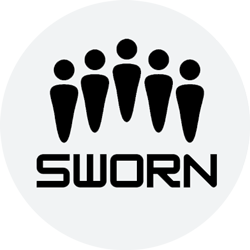AI is helping first responders combat burnout, reduce mental health struggles, and improve overall well-being. Here’s how:
- 85% of first responders report mental health symptoms, with depression and PTSD rates five times higher than the general population.
- Burnout leads to a 47% yearly increase in resignations and a life expectancy of just 57 years for police officers.
- AI tools like SWORN.ai monitor real-time biometrics (e.g., heart rate, sleep) and workplace data to identify stress, predict risks, and offer personalized solutions.
- Features include confidential mental health support, tailored recommendations for stress management, and privacy safeguards like anonymized data and encryption.
AI-powered wellness platforms are transforming how first responders stay healthy, addressing critical issues like suicide (their leading cause of death) and heart attack risks (five times higher than average). These tools save lives, improve retention, and enhance team performance.
Adopting AI wellness tools isn’t just helpful – it’s necessary.
We’re Using AI to Prevent Burnout: Here’s How
How AI Prevents First Responder Burnout
AI technology is stepping in to support first responders by monitoring their health, analyzing risks, and offering tailored recommendations to help them stay resilient.
Health Monitoring Systems
AI-powered health tracking relies on wearable devices to monitor key metrics like heart rate variability, sleep patterns, and stress levels in real time. These systems can spot early signs of physical or mental strain, helping to address issues before they escalate.
For example, SWORN.ai integrates biometric data with advanced AI analysis to monitor physical health while ensuring complete data privacy. This allows departments to identify concerning trends without compromising individual confidentiality. Beyond real-time monitoring, AI also evaluates long-term risk factors to provide a fuller picture of wellbeing.
Risk Assessment Analytics
AI platforms analyze various data points to assess burnout risks. These systems consider factors such as:
- Work schedules and overtime hours
- Exposure to high-stress incidents
- Volume and intensity of response calls
- Length and quality of rest between shifts
- Accumulated stress indicators over time
By comparing these data points to baseline measurements, AI can identify individuals nearing burnout. This proactive approach is crucial, especially considering that police officers face heart attack risks five times higher than the general population.
Personalized Health Recommendations
After assessing risks, AI systems offer customized wellness strategies. These recommendations are based on individual data and are designed to help first responders manage stress and maintain their health. Suggestions might include:
- Scheduling optimal rest periods after demanding shifts
- Practicing stress management techniques
- Improving sleep hygiene tailored to work schedules
- Adjusting physical activity to support recovery
These targeted interventions are vital, given that 85% of first responders report symptoms of mental health conditions. By delivering timely and personalized support, AI helps first responders maintain both their physical and mental health in a challenging line of work.
Mental Health Support Through AI
AI is changing how mental health care is provided to first responders, offering personalized support and early intervention. First responders face depression and PTSD at five times the rate of the general population. Similar to how AI monitors physical health, it now helps protect mental well-being with targeted solutions. Digital tools powered by AI can identify and address mental strain as it happens.
Digital Wellness Tools
AI-based wellness platforms use multiple data sources to provide mental health support. By analyzing real-time biometric data alongside work-related experiences, these tools can detect early signs of mental health challenges.
SWORN.ai’s platform offers features like:
- Real-time monitoring of stress levels using biometric sensors
- Assessment of exposure to traumatic events
- Tailored coping strategies for mental health
- Access to peer support networks
- Intervention methods grounded in research
When high stress levels are detected, the system can recommend solutions such as breathing exercises or connecting with peers, helping prevent more serious issues.
Data Privacy Protection
To ensure first responders feel safe using these tools, robust privacy measures are in place. AI platforms address concerns about confidentiality through several key protections:
- Anonymized Data: Departments only see overall wellness trends, not individual information
- Secure Communication: Personal health data is protected with end-to-end encryption
- User Control: First responders decide how their data is shared
- Regulatory Compliance: Platforms meet HIPAA and other privacy standards
This focus on privacy is critical, especially since 85% of first responders report symptoms of mental health conditions. By safeguarding confidentiality, these tools encourage first responders to seek help without fear of stigma or professional repercussions.
With AI-driven insights and strict privacy measures, first responders can access the support they need while preserving their dignity. This approach is vital in addressing the troubling fact that suicide, not on-duty incidents, is the leading cause of death among first responders.
sbb-itb-aa48905
Results of AI Burnout Prevention
Recent AI-driven strategies have led to noticeable improvements in first responder well-being and overall department efficiency. By combining real-time monitoring with targeted interventions, these approaches are making a measurable difference in both personal health and workplace outcomes.
Mental Health Improvements
AI wellness platforms, equipped with real-time biometric tracking and customized interventions, are helping reduce depression and PTSD rates among first responders. For example, SWORN.ai uses early detection and personalized support to address issues before they escalate, offering a much-needed safety net for those on the frontlines.
Department Performance Gains
The benefits extend beyond individual health. Departments are seeing operational improvements, especially in retention, which has been a growing challenge with a 47% year-over-year rise in officer resignations. AI wellness programs are helping build stronger teams and optimize resources. Considering first responders face heart attack risks five times higher than the general population, early health interventions are critical.
"The integration of AI-powered wellness platforms has revolutionized how we approach first responder health. By identifying potential issues before they escalate, we’re not just saving careers – we’re saving lives", says Sean Bair, founder of SWORN.ai.
With the average life expectancy of a U.S. police officer at just 57 years, these AI-driven solutions are paving the way for better health and longer careers for first responders while boosting departmental performance.
Current Limits and Next Steps
While AI-driven wellness tools show strong potential, there are still obstacles to fully integrating these solutions into first responder departments. Overcoming these issues is crucial to maintaining the mental health benefits and performance improvements discussed earlier.
Implementation Challenges
One major hurdle is data privacy. Departments are understandably cautious about adopting AI wellness platforms due to concerns over how sensitive data will be handled. With many first responders reporting mental health struggles, fears about career repercussions and compatibility with existing systems add to the hesitation. To address this, strict anonymization protocols and HIPAA-compliant encryption methods are in place to protect personal information.
Resolving these challenges is a critical step toward advancing these tools and their capabilities.
New AI Wellness Features on the Horizon
Emerging updates aim to make these platforms even more effective:
| Feature Category | Current Capabilities | Planned Updates |
|---|---|---|
| Biometric Monitoring | Tracks biometrics in real time | Offers deeper biometric insights |
| Support Networks | Provides individual coaching | Adds peer, family, and professional support integration |
| Data Analysis | Tracks personal metrics | Expands to department-wide wellness trends |
| Intervention Tools | Gives basic recommendations | Introduces real-time adaptive support |
These upcoming features focus on addressing critical health risks, such as the heightened likelihood of heart attacks. Early intervention is especially important, given that suicide remains the leading cause of death among first responders.
SWORN.ai continues to grow its capabilities by integrating evidence-based self-care tools and improving real-time biometric tracking. By combining data from private surveys with CAD/RMS event records, the platform is delivering increasingly tailored recommendations to support the physical and mental health of first responder teams.
Conclusion
AI-driven wellness tools play a crucial role in addressing the mental health crisis among first responders. With higher rates of depression, PTSD, and other mental health challenges in this community, these tools provide timely and personalized support when it’s needed the most.
By combining biometric tracking with proven wellness strategies, AI platforms offer real-time, tailored interventions. This approach helps departments address serious issues like workforce retention and overall well-being. For example, SWORN.ai integrates AI technology with real-time biometric data and customized support plans, offering a new way to safeguard the mental and physical health of first responders. These advancements build on existing research and pave the way for even more effective solutions in the future.
Given the heightened risks first responders face daily, adopting these tools isn’t just about improving performance – it’s about saving lives. With suicide being the leading cause of death among first responders, the importance of these platforms cannot be overstated. Continued innovation, paired with strong privacy protections, is essential to ensure the long-term health and resilience of those who dedicate their lives to public safety.





